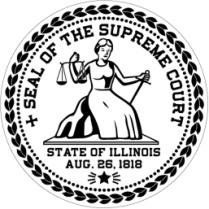Quick Takes on Illinois Supreme Court Opinions Issued Friday, June 1

The Illinois Supreme Court handed down one opinion on Friday, June 1. The court determined that the appellate court lacked jurisdiction to review a circuit court clerk’s imposition of fines that were not ordered by the circuit court.
By Kerry J. Bryson, Office of the State Appellate Defender
Following his conviction of child pornography, defendant Ricardo Vara was sentenced to a three-year prison term and ordered to pay various fines by the court. Subsequently, the circuit clerk recorded those fines in an electronic accounts receivable record. The clerk also recorded other mandatory fines that had not been imposed by the judge. On appeal, Vara challenged the clerk’s imposition of those additional fines, arguing that while they were mandatory, they were void because the clerk lacked the authority to impose fines. The appellate court agreed and vacated the fines in question.
The supreme court concluded that the appellate court lacked jurisdiction over the fines and vacated the appellate court’s order. While the appellate court’s jurisdiction had not been challenged below, the supreme court noted that it has an obligation to determine its jurisdiction. Because the appellate court lacked jurisdiction, the supreme court vacated the appellate court’s order and dismissed the appeal.
The supreme court’s opinion was based on its conclusion that the clerk’s error in recording fines that were not imposed by the court was a data entry error that did not affect the judgment. Indeed, the court noted that the clerk’s recording of additional fines was "invalid and unenforceable." However, the court held that the improper recording was not reviewable by the appellate court because it was not part of the judgment on appeal. The court concluded that "any questions as to the accuracy of the data entries included in the payment status information must be resolved through the cooperation of the parties and the circuit clerk or by the circuit court in a mandamus proceeding."
In reaching its decision, the court distinguished its relatively recent decision in People v. Gutierrez, 2012 IL 111590, where it had vacated a clerk-imposed public defender fee under the void sentence rule. The Court concluded that People v. Castleberry, 2015 IL 116916, had since abrogated the void sentence rule and thus the reasoning in Gutierrez no longer applied.
Justices Karmeier and Thomas both authored dissenting opinions, each joined by the other. Both justices opined that the improperly recorded fines could be addressed on appeal pursuant to the Clerks of Courts Act, Section 16, which requires the clerk to maintain a fee book, which is considered part of the record on appeal and is subject to correction by the court.
Justice Karmeier noted that the fines-and-fees system is increasingly complicated and lamented the majority opinion’s limitation on reviewing courts’ ability to correct inevitable errors.
Justice Thomas criticized the court’s departure from its holding in Gutierrez, noting that the court had rejected the same jurisdictional arguments in that case that the majority now accepted in Vara’s case. He concluded that Gutierrez was not dependent on the void sentence rule, that Castleberry had not undermined the jurisdictional analysis in Gutierrez, and that the majority had ignored the doctrine of stare decisis in overruling Gutierrez.
Justice Thomas also rejected the notion that the clerk’s electronic recording of additional fines was a mere data entry error and instead concluded that the clerk had improperly assessed fines against Vara. Finally, Justice Thomas noted that even if the majority’s jurisdictional arguments were correct, the appellate court still had the authority to correct the clerk’s errors because courts have broad authority to correct the clerk’s mistakes at any time. Because the appellate court had authority over the criminal case by virtue of the timely notice of appeal that had been filed, it had authority to correct the clerk’s payment status information.

